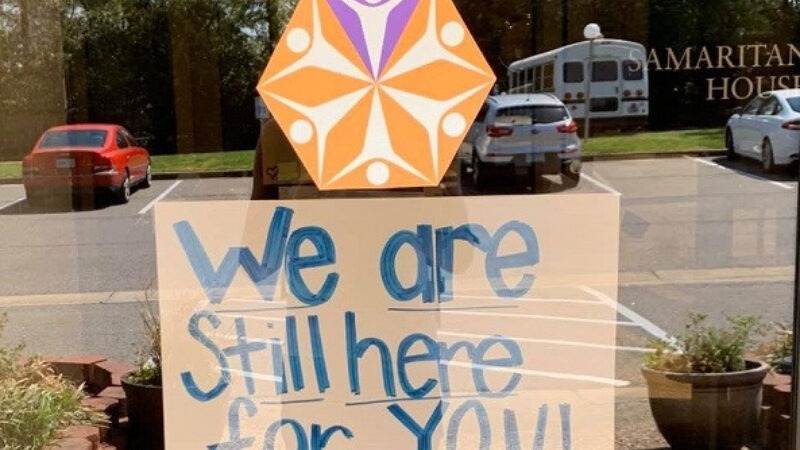Samaritan House: A Resource for People Experiencing Violence and Homelessness

Samaritan House budgets $30,000 annually for hotel rooms to give people being abused or experiencing homelessness a safe temporary stay.
With the COVID-19 pandemic, domestic violence increased as stay-at-home restrictions exacerbated abusive situations. Early in the pandemic, Samaritan House used all of its hotel money.
“That was a really scary time,” Samaritan House Executive Director Robin Gauthier said. “I was applying for every COVID grant that was out there” to get emergency funds to keep people housed.
Samaritan House received two COVID Response grants from the Hampton Roads Community Foundation, one for $10,000 from the Foundation and a joint $20,000 grant with United Way of South Hampton Roads.
During the peak of the pandemic, those grants enabled Samaritan House to pay for 43 weeks of hotel stays, at $693 a week per family or household, Gauthier said.
For more than 35 years, Samaritan House has been a resource for people in Hampton Roads experiencing violence and homelessness. The nonprofit provides comprehensive services, including victim advocacy and children’s programs, and it runs 14 safe houses for emergency shelter.
“There was a huge spike in domestic violence,” she said, with pandemic-related unemployment and evictions putting extra stress on families. “That combined with limiting how many people per shelter (because of the coronavirus) gave us an overflow we had to deal with.”
Samaritan House placed between 12 and 15 families at a time in hotels, Gauthier said.
“Most of them (the families) were in imminent danger from domestic violence, with no room in our shelters,” Gauthier said. “We put them in hotels temporarily until shelter opens up.”
In a couple of cases, the hotel grant funds assisted people experiencing homelessness, Gauthier said, including a 65-year-old woman who arrived at Samaritan House’s Virginia Beach office late one afternoon. Gauthier did not disclose the woman’s name to preserve her privacy.
Wet, shivering, and wearing scrubs, the woman had just walked, using a walker, from a local hospital after being discharged. A hospital band was still on her wrist.
Tapping into funds from the community and private foundations, Samaritan House took the woman to a hotel and gave her additional food, clothing, and hygiene supplies.
A case manager met with her the following morning and gleaned more information about her family history. Within a week, Samaritan House was able to connect her back with her family.
“Having that extra money for hotels has been extremely helpful at this time,” Gauthier said.


